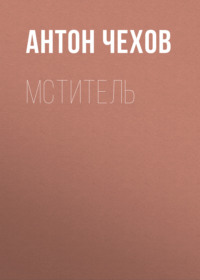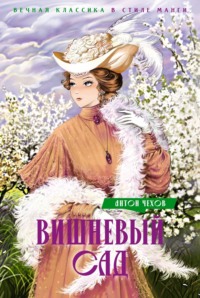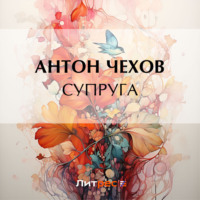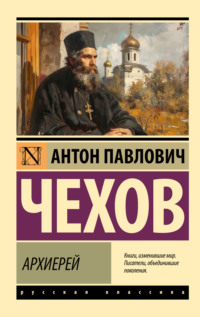 полная версия
полная версияLetters of Anton Chekhov to His Family and Friends
After five or six days rain with high winds began. It rained day and night. The leather overcoat came to the rescue and kept me safe from rain and wind. It’s a wonderful coat. The mud was almost impassable, the drivers began to be unwilling to go on at night. But what was worst of all, and what I shall never forget, was crossing the rivers. One reaches a river at night… One begins shouting and so does the driver… Rain, wind, pieces of ice glide down the river, there is a sound of splashing… And to add to our gaiety there is the cry of a heron. Herons live on the Siberian rivers, so it seems they don’t consider the climate but the geographical position… Well, an hour later, in the darkness, a huge ferry-boat of the shape of a barge comes into sight with huge oars that look like the pincers of a crab. The ferry-men are a rowdy set, for the most part exiles banished here by the verdict of society for their vicious life. They use insufferably bad language, shout, and ask for money for vodka… The ferrying across takes a long, long time … an agonizingly long time. The ferryboat crawls. Again the feeling of loneliness, and the heron seems calling on purpose, as though he means to say: “Don’t be frightened, old man, I am here, the Lintvaryovs have sent me here from the Psyol.”
On the 7th of May when I asked for horses the driver said the Irtysh had overflowed its banks and flooded the meadows, that Kuzma had set off the day before and had difficulty in getting back, and that I could not go, but must wait… I asked: “Wait till when?” Answer: “The Lord only knows!” That was vague. Besides, I had taken a vow to get rid on the journey of two of my vices which were a source of considerable expense, trouble, and inconvenience; I mean my readiness to give in, and be overpersuaded. I am quick to agree, and so I have had to travel anyhow, sometimes to pay double and to wait for hours at a time. I had taken to refusing to agree and to believe – and my sides have ached less. For instance, they bring out not a proper carriage but a common, jolting cart. I refuse to travel in the jolting cart, I insist, and the carriage is sure to appear, though they may have declared that there was no such thing in the whole village, and so on. Well, I suspected that the Irtysh floods were invented simply to avoid driving me by night through the mud. I protested and told them to start. The peasant who had heard of the floods from Kuzma, and had not himself seen them, scratched himself and consented; the old men encouraged him, saying that when they were young and used to drive, they were afraid of nothing. We set off. Much rain, a vicious wind, cold … and felt boots on my feet. Do you know what felt boots are like when they are soaked? They are like boots of jelly. We drive on and on, and behold, there lies stretched before my eyes an immense lake from which the earth appears in patches here and there, and bushes stand out: these are the flooded meadows. In the distance stretches the steep bank of the Irtysh, on which there are white streaks of snow… We begin driving through the lake. We might have turned back, but obstinacy prevented me, and an incomprehensible impulse of defiance mastered me – that impulse which made me bathe from the yacht in the middle of the Black Sea and has impelled me to not a few acts of folly … I suppose it is a special neurosis. We drive on and make for the little islands and strips of land. The direction is indicated by bridges and planks; they have been washed away. To cross by them we had to unharness the horses and lead them over one by one… The driver unharnesses the horses, I jump out into the water in my felt boots and hold them… A pleasant diversion! And the rain and wind… Queen of Heaven! At last we get to a little island where there stands a hut without a roof… Wet horses are wandering about in the wet dung. A peasant with a long stick comes out of the hut and undertakes to guide us. He measures the depth of the water with his stick, and tries the ground. He led us out – God bless him for it! – on to a long strip of ground which he called “the ridge.” He instructs us that we must keep to the right – or perhaps it was to the left, I don’t remember – and get on to another ridge. This we do. My felt boots are soaking and squelching, my socks are snuffling. The driver says nothing and clicks dejectedly to his horses. He would gladly turn back, but by now it was late, it was dark… At last – oh, joy! – we reach the Irtysh… The further bank is steep but the near bank is sloping. The near one is hollowed out, looks slippery, hateful, not a trace of vegetation… The turbid water splashes upon it with crests of white foam, and dashes back again as though disgusted at touching the uncouth slippery bank on which it seems that none but toads and the souls of murderers could live… The Irtysh makes no loud or roaring sound, but it sounds as though it were hammering on coffins in its depths… A damnable impression! The further bank is steep, dark brown, desolate…
There is a hut; the ferry-men live in it. One of them comes out and announces that it is impossible to work the ferry as a storm has come up. The river, they said, was wide, and the wind was strong. And so I had to stay the night at the hut… I remember the night. The snoring of the ferry-men and my driver, the roar of the wind, the patter of the rain, the mutterings of the Irtysh… Before going to sleep I wrote a letter to Marya Vladimirovna; I was reminded of the Bozharovsky pool.
In the morning they were unwilling to ferry me across: there was a high wind. We had to row across in the boat. I am rowed across the river, while the rain comes lashing down, the wind blows, my luggage is drenched and my felt boots, which had been dried overnight in the oven, become jelly again. Oh, the darling leather coat! If I did not catch cold I owe it entirely to that. When I come back you must reward it with an anointing of tallow or castor-oil. On the bank I sat for a whole hour on my portmanteau waiting for horses to come from the village. I remember it was very slippery clambering up the bank. In the village I warmed myself and had some tea. Some exiles came to beg for alms. Every family makes forty pounds of wheaten flour into bread for them every day. It’s a kind of forced tribute.
The exiles take the bread and sell it for drink at the tavern. One exile, a tattered, closely shaven old man, whose eyes had been knocked out in the tavern by his fellow-exiles, hearing that there was a traveller in the room and taking me for a merchant, began singing and repeating the prayers. He recited the prayer for health and for the rest of the soul, and sang the Easter hymn, “Let the Lord arise,” and “With thy Saints, O Lord” – goodness knows what he didn’t sing! Then he began telling lies, saying that he was a Moscow merchant. I noticed how this drunken creature despised the peasants upon whom he was living.
On the 11th I drove with posting horses. I read the books of complaints at the posting station in my boredom.
… On the 12th of May they would not give me horses, saying that I could not drive, because the River Ob had overflowed its banks and flooded all the meadows. They advised me to turn off the track as far as Krasny Yar; then go by boat twelve versts to Dubrovin, and at Dubrovin you can get posting horses… I drove with private horses as far as Krasny Yar. I arrive in the morning; I am told there is a boat, but that I must wait a little as the grandfather had sent the workman to row the president’s secretary to Dubrovin in it. Very well, we will wait… An hour passes, a second, a third… Midday arrives, then evening… Allah kerim, what a lot of tea I drank, what a lot of bread I ate, what a lot of thoughts I thought! And what a lot I slept! Night came on and still no boat… Early morning came… At last at nine o’clock the workmen returned… Thank heaven, we are afloat at last! And how pleasant it is! The air is still, the oarsmen are good, the islands are beautiful… The floods caught men and cattle unawares and I see peasant women rowing in boats to the islands to milk the cows. And the cows are lean and dejected. There is absolutely no grass for them, owing to the cold. I was rowed twelve versts. At the station of Dubrovin I had tea, and for tea they gave me, can you imagine! waffles… I suppose the woman of the house was an exile or the wife of an exile. At the next station an old clerk, a Pole, to whom I gave some antipyrin for his headache, complained of his poverty, and said Count Sapyega, a Pole who was a gentleman-in-waiting at the Austrian Court, and who assisted his fellow-countrymen, had lately arrived there on his way to Siberia, “He stayed near the station,” said the clerk, “and I didn’t know it! Holy Mother! He would have helped me! I wrote to him at Vienna, but I got no answer, …” and so on. Why am I not a Sapyega? I would send this poor fellow to his own country.
On the 14th of May again they would not give me horses. The Tom was flooded. How vexatious! It meant not mere vexation but despair! Fifty versts from Tomsk and how unexpected! A woman in my place would have sobbed. Some kind-hearted people found a solution for me. “Drive on, sir, as far as the Tom, it is only six versts from here; there they will row you across to Yar, and Ilya Markovitch will take you on from there to Tomsk.” I hired a horse and drove to the Tom, to the place where the boat was to be. I drove – there was no boat. They told me it had just set off with the post, and was hardly likely to return as there was such a wind. I began waiting… The ground was covered with snow, it rained and hailed and the wind blew… One hour passed, a second, and no boat. Fate was laughing at me. I returned to the station. There the driver of the mail with three posting horses was just setting off for the Tom. I told him there was no boat. He stayed. Fate rewarded me; the clerk in response to my hesitating inquiry whether there was anything to eat told me the woman of the house had some cabbage soup. Oh, rapture! Oh, radiant day! And the daughter of the house did in fact give me some excellent cabbage soup, with some capital meat with roast potatoes and cucumbers. I have not had such a dinner since I was at Pan Zalyessky’s. After the potatoes I let myself go, and made myself some coffee.
Towards evening the mail driver, an elderly man who had evidently endured a good deal in his day, and who did not venture to sit down in my presence, began preparing to set off to the Tom. I did the same. We drove off. As soon as we reached the river the boat came into sight – a long boat: I have never dreamed of a boat so long. While the post was being loaded on to the boat I witnessed a strange phenomenon – there was a peal of thunder, a queer thing in a cold wind, with snow on the ground. They loaded up and rowed off. My sweet Misha, forgive me for being so rejoiced that I did not bring you with me! How sensible it was of me not to take anyone with me! At first our boat floated over a meadow near willow-bushes… As is common before a storm or during a storm, a violent wind suddenly sprang up on the water and stirred up the waves. The boatman who was sitting at the helm advised our waiting in the willow-bushes till the storm was over. They answered him that if the storm grew worse, they might stay in the willow-bushes till night and be drowned all the same. They proceeded to settle it by majority of votes, and decided to row on. An evil mocking fate is mine. Oh, why these jests? We rowed on in silence, concentrating our thoughts… I remember the figure of the mail-driver, a man of varied experiences. I remember the little soldier who suddenly became as crimson as cherry juice. I thought, if the boat upsets I will fling off my fur coat and my leather coat … then my felt boots, then … and so on… But the bank came nearer and nearer, one’s soul felt easier and easier, one’s heart throbbed with joy, one heaved deep sighs as though one could breathe freely at last, and leapt on the wet slippery bank… Thank God!
At Ilya Markovitch’s, the converted Jew’s, I was told that I could not drive at night; the road was bad; that I must remain till next day. Very good, I stayed. After tea I sat down to write you this letter, interrupted by the visit of the “president.” The president is a rich mixture of Nozdryov, Hlestakov and a cur. A drunkard, a rake, a liar, a singer, a story-teller, and with all that a good-natured man. He had brought with him a big trunk stuffed full of business papers, a bedstead and mattress, a gun, and a secretary. The secretary is an excellent, well-educated man, a protesting liberal who has studied in Petersburg, and is free in his ideas; I don’t know how he came to Siberia, he is infected to the marrow of his bones with every sort of disease, and is taking to drink, thanks to his principal, who calls him Kolya. The representative of authority sends for a cordial. “Doctor,” he bawls, “drink another glass, I beseech you humbly!” Of course, I drink it. The representative of authority drinks soundly, lies outrageously, uses shameless language. We go to bed. In the morning a cordial is sent for again. They swill the cordial till ten o’clock and at last they go. The converted Jew, Ilya Markovitch, whom the peasants here idolize – so I was told – gave me horses to drive to Tomsk.
The “president,” the secretary and I got into the same conveyance. All the way the “president” told lies, drank out of the bottle, boasted that he did not take bribes, raved about the scenery, and shook his fist at the tramps that he met. We drove fifteen versts, then halt! The village of Brovkino… We stop near a Jew’s shop and go to take “rest and refreshment.” The Jew runs to fetch us a cordial while his wife makes us some fish-soup, of which I have written to you already. The “president” gave orders that the sotsky, the desyatsky, and the road contractor should come to him, and in his drunkenness began reproving them, not the least restrained by my presence. He swore like a Tatar.
I soon parted from the “president,” and on the evening of the 15th of May by an appalling road reached Tomsk. During the last two days I have only done seventy versts; you can imagine what the roads are like!
In Tomsk the mud was almost impassable. Of the town and the manner of living here I will write in a day or two, but good-bye for now – I am tired of writing.
There are no poplars. The Kuvshinnikov General was lying. I have seen no nightingales. There are magpies and cuckoos.
I received a telegram of eighty words from Suvorin to-day.
Excuse this letter’s being like a hotch-potch. It’s incoherent, but I can’t help it. Sitting in an hotel room one can’t write better. Excuse its being long, It’s not my fault. My pen ran away with me – besides, I wanted to go on talking to you. It’s three o’clock in the night. My hand is tired. The wick of the candle wants snuffing, I can hardly see. Write to me at Sahalin every four or five days. It seems that the post goes there, not only by sea but across Siberia, so I shall get letters frequently.
All the Tomsk people tell me that there has not been a spring so cold and rainy as this one since 1842. Half Tomsk is under water. My luck!
I am eating sweets.
I shall have to stay at Tomsk till the rains are over. They say the road to Irkutsk is awful.
TOMSK,
May 20.
It is Trinity Sunday with you, while with us even the willow has not yet come out, and there is still snow on the banks of the Tom. To-morrow I am starting for Irkutsk. I am rested. There is no need for hurry, as steam navigation on Lake Baikal does not begin till the 10th of June; but I shall go all the same.
I am alive and well, my money is safe; I have a slight pain in my right eye. It aches.
… Everyone advises me to go back across America, as they say one may die of boredom in the Volunteer Fleet; it’s all military discipline and red tape regulations, and they don’t often touch at a port.
To fill up my time I have been writing some impressions of my journey and sending them to Novoye Vremya; you will read them soon after the 10th of June. I write a little about everything, chit-chat. I don’t write for glory but from a financial point of view, and in consideration of the money I have had in advance.
Tomsk is a very dull town. To judge from the drunkards whose acquaintance I have made, and from the intellectual people who have come to the hotel to pay their respects to me, the inhabitants are very dull too.
In two and a half days I shall be in Krasnoyarsk, and in seven or eight in Irkutsk. It’s fifteen hundred versts to Irkutsk. I have made myself coffee and am just going to drink it.
… After Tomsk the Taiga begins. We shall see it.
My greeting to all the Lintvaryovs and to our old Maryushka. I beg mother not to worry and not to put faith in bad dreams. Have the radishes succeeded? There are none here at all.
Keep well, don’t worry about money – there will be plenty; don’t try to spend less and spoil the summer for yourselves.
TO A. S. SUVORIN
TOMSK, May 20, 1890.
Greetings to you at last from Siberia, dear Alexey Sergeyevitch! I have missed you and our correspondence terribly.
I will begin from the beginning, however. At Tyumen I was told the first steamer to Tomsk went on the 18th of May. I had to do the journey with horses. For the first three days every joint and sinew ached, but afterwards I got used to the jolting and felt no more aches. Only the lack of sleep, the continual worry over the luggage, the jolting and the fasting brought on spitting of blood when I coughed, and this depressed my spirits, which were none too grand before. For the first few days it was bearable but then a cold wind began to blow, the windows of heaven were opened, the rivers flooded the meadows and roads, I was continually having to change my chaise for a boat. You’ll read of my struggles with the floods and the mud in the article I enclose. I did not mention in it that my big high boots were tight, and that I waded through the mud and the water in my felt boots, and that my felt boots were soaked to jelly. The road was so abominable that during the last two days of my journey I only did seventy versts.
When I set off I promised to send you notes of my journey after Tomsk, since the road between Tyumen and Tomsk has been described a thousand times already. But in your telegram you have expressed the desire to get my impressions of Siberia as quickly as possible, and have even had the cruelty, sir, to reproach me with lapse of memory, as though I had forgotten you. It was absolutely impossible to write on the road. I kept a brief diary in pencil and can offer you now only what is written in that diary. To avoid writing at great length and getting mixed up, I divided all my impressions into chapters. I am sending you six chapters. They are written for you personally. I wrote for you only, and so have not been afraid of being too subjective, and have not been afraid of there being more of Chekhov’s feelings and thoughts than of Siberia in them. If you find some lines interesting and worth printing, give them a profitable publicity, signing them with my name and printing them in separate chapters, a tablespoonful once an hour. The general title can be From Siberia, then From Trans-Baikalia, then From the Amur, and so on.
You shall have another helping from Irkutsk, for which I am starting to-morrow. I shall not be less than ten days on the journey – the road is bad. I shall send you a few chapters again, and shall send them whether you intend to print them or not. Read them and when you are tired of them telegraph to me “Shut up!”
I have been as hungry as a dog the whole way. I stuffed myself with bread so as not to dream of turbot, asparagus, and suchlike. I even dreamed of buckwheat porridge. I have dreamed of it for hours at a time.
At Tyumen I bought some sausage for the journey, but what sausage! When you take a bit in your mouth there’s a sniff as though you had gone into a stable at the very moment when the coachmen were taking off their leg-wrappers; when you begin chewing it, you feel as though you had fastened your teeth into a dog’s tail defiled with pitch. Tfoo! I ate some once or twice, and threw it away.
I have had one telegram and the letter from you in which you write that you want to bring out an encyclopaedic dictionary. I don’t know why, but the news of that dictionary rejoiced me greatly. Do, my dear friend! If I am any use for working on it, I will devote November and December to you, and will spend those months in Petersburg. I will sit at it from morning till night.
I made a fair copy of my notes at Tomsk in horrid hotel surroundings, but I took trouble about it and was not without a desire to please you. I thought, he must be bored and hot in Feodosia, let him read about the cold. These notes will come to you instead of a letter which has been taking shape in my head during the whole journey. In return you must send to me at Sahalin all your critical reviews except the first two, which I have read; have Peshel’s “Ethnology” sent me there too, except the first two instalments, which I have already.
The post to Sahalin goes both by sea and across Siberia, so if people write to me I shall get letters often. Don’t lose my address —Island of Sahalin, Alexandrovsky Post.
Oh, the expense! Gewalt! Thanks to the floods, I had to pay the drivers double and almost treble, for it has been fiendishly hard work. My trunk, a very charming article, has turned out unsuitable for the journey; it takes a lot of room, pokes one in the ribs, and rattles, and worst of all threatens to burst open. “Don’t take boxes on long journeys!” good people said to me, but I remembered this advice only when I had gone half-way. Well, I am leaving my trunk to reside permanently at Tomsk, and am buying instead of it a sort of leather carcase, which has the advantage that it can be tied so as to form two halves at the bottom of the chaise as one likes. I paid sixteen roubles for it. Next point. To travel to the Amur, changing one’s conveyance at every station, is torture. You shatter both yourself and all your luggage. I was advised to buy a trap. I bought one to-day for one hundred and thirty roubles. If I don’t succeed in selling it at Sryetensk, where my horse journey ends, I shall be in a fix and shall howl aloud. To-day I dined with the editor of the Sibirsky Vyestnik, a local Nozdryov, a broad nature… He drank to the tune of six roubles.
Stop! They announce that the deputy police master wants to see me. What can it be?!?
My alarm was unnecessary. The police officer turns out to be devoted to literature and himself an author; he has come to pay his respects to me. He went home to fetch his play, and I believe intends to regale me with it. He is just coming again and preventing me from writing to you…
… My greetings to Nastyusha and Boris. I should be genuinely delighted for their satisfaction to fling myself into the jaws of a tiger and call them to my aid, but, alas! I haven’t reached the tigers here: the only furry animals I have seen so far in Siberia are many hares and one mouse.
Stop! The police officer has returned. He has not read me his drama though he brought it, but regaled me with a story. It’s not bad, only too local. He showed me a nugget of gold. He asked for some vodka. I don’t remember a single educated Siberian who has not asked for vodka on coming to see me. He told me he had a mistress, a married woman; he gave me a petition to the Tsar about divorce to read…
How glad I am when I am forced to stop somewhere for the night! I no sooner roll into bed than I am asleep. Here, travelling and not sleeping at night, one prizes sleep above everything. There is no greater enjoyment in life than sleep when one is sleepy. In Moscow, in Russia generally, I never was sleepy as I understand the word now. I went to bed simply because one had to. But now! Another observation. On a journey one has no desire for spirits. I can’t drink. I smoke a great deal. One’s mind does not work well. I cannot put my thoughts together. Time flies rapidly, so that one scarcely notices it, from ten o’clock in the morning to seven o’clock in the evening. Evening comes quickly after morning. It’s just the same when one is seriously ill. The wind and the rain have made my face all scaly, and when I look in the looking-glass I don’t recognize my once noble features.
I am not going to describe Tomsk. All the towns are alike in Russia. Tomsk is a dull and intemperate town. There are absolutely no good-looking women, and the disregard for justice is Asiatic. The town is remarkable for the fact that governors die in it.









